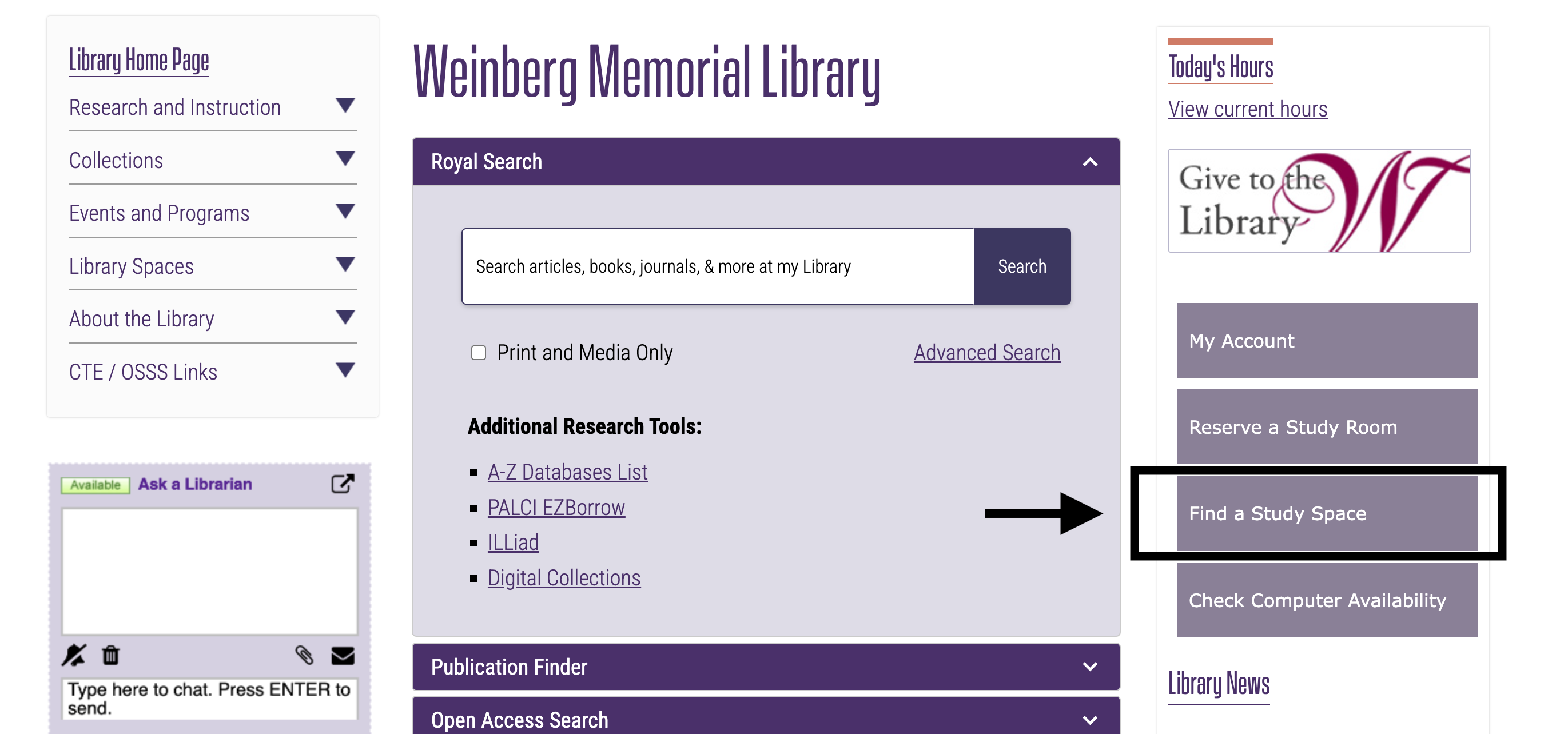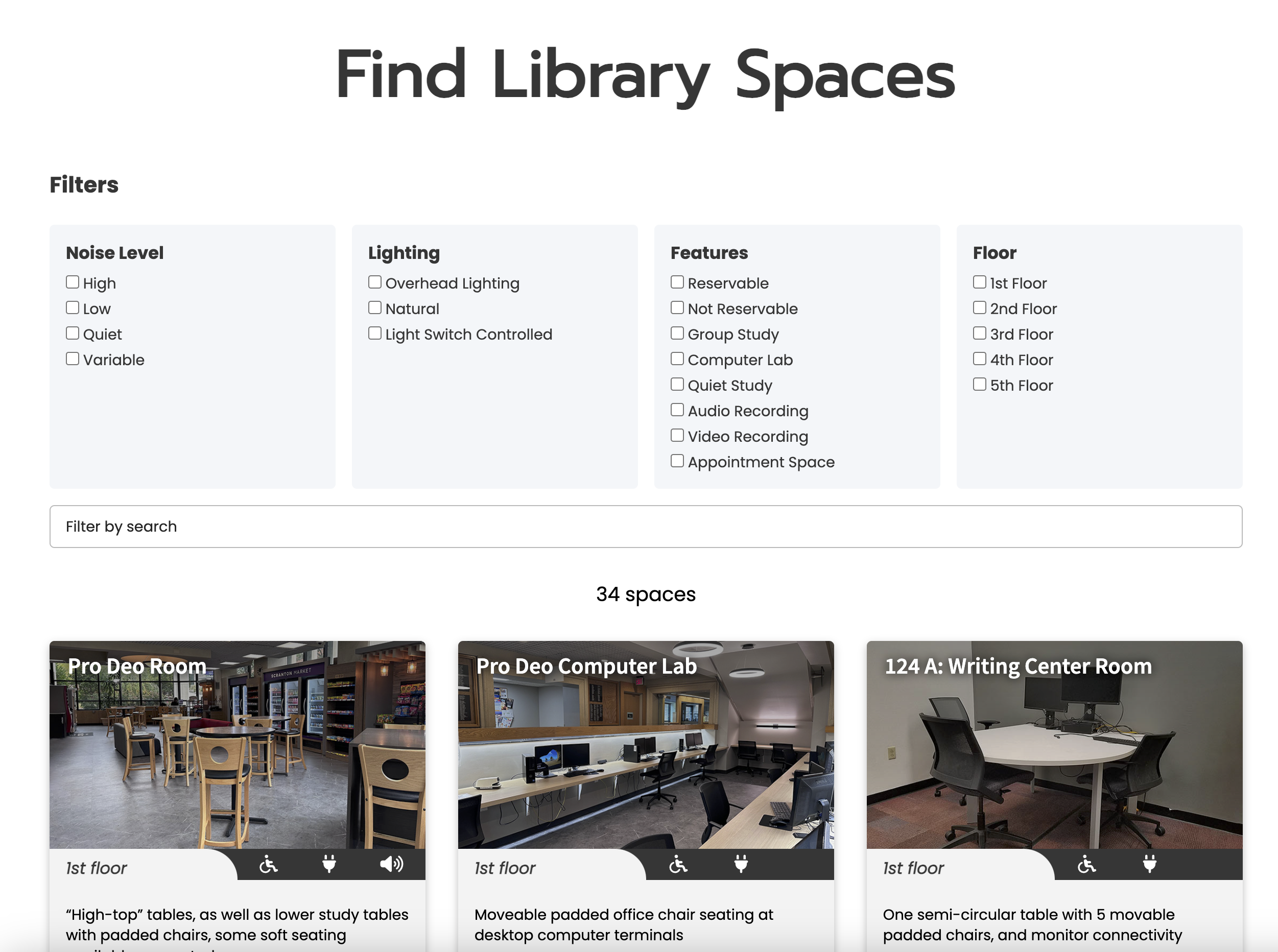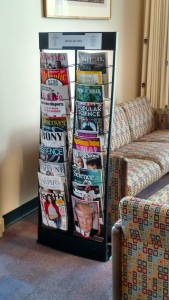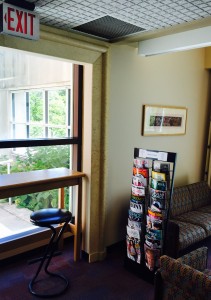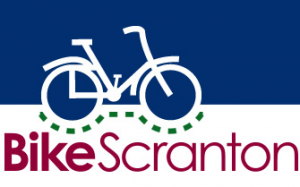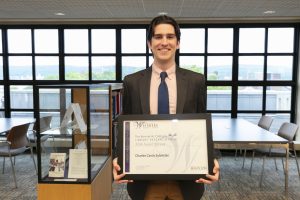
Charles Cavin Sylvester is the winner of the 2024 Bonnie W. Oldham Library Research Prize in the Undergraduate Upper-level category. This prize is awarded to the winning project completed in a 200- to 400-level course.
Charles is a senior Environmental Science major, he submitted to the competition the paper titled “Environmental Review of CFCs and their Replacements; the Montreal Protocol Plan” completed in the course CHEM 390: Chemical Literature and Writing, taught by Dr. Michael Fennie.
For research purposes, Charles relied on a number of library databases such as Academic Search Elite, ProQuest Central, and the American Chemical Society publications in order to identify pertinent peer-reviewed primary source literature. Charles utilized a wide range of sources including secondary sources such as textbooks and white papers to ascertain governmental information regarding the Montreal Protocol. In his description of research he also mentions obtaining access to three crucial papers for his research through the Library’s Interlibrary loan system. Charles used the citation management software Zotero to manage and organize his large number of sources, and adds that as a first-time user of Zotero, he was amazed at how this tool streamlined his research process.
In choosing this research topic, Charles mentions; “I wanted to choose something that affects everyone, something that is applicable to everyone’s daily life, something that would help better the lives of all. Pope Francis calls us to be stewards of the Earth. Most recently in his “Laudato Deum,” he specifically called out the United States for not being good enough. Therefore, embracing my Jesuit values, I wanted to write an impactful paper on the Montreal Protocol Plan to assess if were we doing enough to protect ourselves from the tragedy of ozone depletion by chlorofluorocarbons (CFCs).”
Through the research process, Charles mentions, “I have done many research projects throughout my time at the University, but this one truly taught me the notion of not giving up before I found the right data. My strive for Magis drove me. To write a fair and accurate paper, I needed specific data for CFCs and their three replacements concerning ozone depletion potentials, pathways for tropospheric sinks, radiative efficiencies, lifetimes, and global warming potentials. It was not an easy task, but I am extremely satisfied that I was successful in doing so. It made my paper so much more complete. The accomplishment will stick with me, and it taught me a lasting lesson about researching.” His research is timely and describes high-level scientific processes in a readable and straightforward manner. His work details a truly successful application of Science as a change agent for improvement in environmental policy.
Honorable Mention awards in the 2024 Bonnie W. Oldham Library Research Prize in the Undergraduate Upper-level category were presented to Gabrielle Bingener, a third-year Neuroscience major, for her project titled “Transposing The Wounded Storyteller,” completed in the course ENLT 224: Perspectives in Literature about Illness taught by Dr. Billie Tadros; and to Occupational Therapy major Victoria Smulowitz for her paper titled “The Impact of Breast Cancer Survivors’ Participation in Society Due to a Loss of Occupational Engagement,” completed in the course OT 250: Scientific Writing and Information Literacy taught by Dr. Carol Coté.
Gabrielle Allen and Julianna Lunt are the winners of the 2024 Bonnie W. Oldham Library Research Prize in the Graduate category.
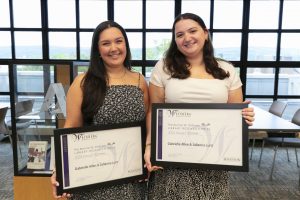
Gabrielle and Julianna are in the Master of Science in Occupational Therapy program. They submitted to the competition their project titled “The Changing Role of Occupational Therapy in Neonatal Care” completed in the course OT 544: Leadership Principles, Ethics, and Pragmatics, taught by Dr. Marlene Morgan.
When Gabrielle and Julianna set off on their Historical Analysis of Occupational Therapy assignment, they wanted to choose a topic that would be beneficial for the occupational therapy profession and focused specifically on vulnerable populations, whose lives have been impacted by advancements in OT. They ultimately landed on neonatal care.
For this difficult historical analysis, they used a multitude of Library resources, from print to digital, and archival. They also sought assistance from the librarians who guided them through how to begin finding and evaluating relevant information. While at first intimidated by the research process, they began to feel “a bit like detectives” as they went about their information seeking. In true Jesuit tradition, they were pushed to become better researchers while tasked with taking time to be reflective of their findings.
In their description of research, they summarize the ways their research process reflected Ignatian characteristics when they say, “Whether it was the discernment of choosing a research topic that would benefit the future of OT and help advocate for the infants in the NICU, or learning how to navigate new equipment to access archival journals on microfilm, this project fostered growth in many different ways.”
They go on: “We found ourselves discussing our gratitude to receive a Jesuit education while completing this research project,” and furthermore apply the Jesuit concept of “Contemplatio ad amorem” to their work on this project when they say:“The research process incorporated active parts and also included reflection of the findings. It was in these moments of reflection that we were able to uncover themes throughout history and have “breakthrough moments”. Most importantly, our research was driven by the love of God because we sought to choose a topic that would improve the quality of life for His most vulnerable creations.”
In this way, Gabrielle and Julianna illustrate how the research process can transform both the researcher and those whom the research will serve.
Honorable Mention awards in the 2024 Bonnie W. Oldham Library Research Prize Graduate category were presented to Master of Occupational Therapy students Catherine Casola and Kiera Harvey, their project titled “The History of Occupational Therapy in Neurological Conditions,” completed in the course OT 544: Leadership Principles, Ethics, and Pragmatics, taught by Dr. Marlene Morgan; and to Doctor of Physical Therapy students Lauren Colella, Erin O’Shaughnessy, Michele Felice Rovaris, and Sydney Walters, for their project titled “Mental Health Factors and Exercise Adherence in Women with Breast Cancer Interventions: A Systematic Review,” completed in the course PT 773: Scientific Inquiry III for PT, taught by Dr. Anthony Carusotto.
Emma Torok is the winner of the 2024 Bonnie W. Oldham Library Research Prize Undergraduate Foundational category. This prize category is designed to recognize research excellence and learning in the first year. It is awarded to the winning project completed in a 100-level course.*
Emma is a first-year Early Education Major who submitted her paper titled “Analyzing the Effectiveness of In-Person Learning vs. Online Learning” completed in Prof. Dawn D’Aries Zera’s Writing 107: Composition course.
Tasked with researching an argumentative contemporary issue related to her major, Emma began her research in class and an information literacy session with a faculty librarian where she learned about different types of resources available including books, videos, online journals, Interlibrary Loan, and more. In her description of research, Emma discussed using the Library’s main search tool, Royal Search, to find peer reviewed articles through the use of limiters and Boolean logic. She shared how adding a variety of sources, like scholarly research articles, but also news articles from the New York Times and NPR, helped balance her argument and solidify her findings.
Emma also discussed the importance of keeping an open mind while conducting research as to avoid confirmation bias. In her application she states, “There have been times when I began my research specifically looking for articles that agreed with my predetermined thoughts. However, for this project, I deliberately searched for articles that stated the benefits of both online and in-person learning. I am so thankful for all that I learned in the library program and on the library website because, without learning other perspectives, my paper would not have been formulated fairly.”
Emma went on to discuss how through the research process she embodied the Ignatian characteristic of Cura Personalis. She states, “My research paper demonstrated this in two main ways: my open perspective to research and my personal connection to my topic. Before conducting any research, and even before finalizing my topic, I ensured that I educated myself on both sides of the debate. Just like St. Ignatius would do, I appreciated and thought critically about both perspectives before deciding my opinion.”
The 2024 Bonnie W. Oldham Library Research Prize Undergraduate Foundational category Honorable Mention award was presented to first-year Biochemistry, Cell & Molecular Biology major Andrew Mauriello, for his project titled “Gene Therapy: An Effective Treatment for Some of the World’s Deadliest Diseases” completed in his WRITING 107: Composition course taught by Prof. Dawn D’Aries Zera.
Currently celebrating its 13th year, the Weinberg Memorial Library inaugurated the Library Research Prize in 2011 to recognize excellence in research projects that show evidence of significant knowledge of the methods of research and the information gathering process, and use of library resources, tools, and services. In 2017, the prize was named for Professor Emerita Bonnie W. Oldham, who founded the prize at the University in 2011. The Bonnie W. Oldham Library Research Prize was fully endowed in 2019 and consists of a prize of $500 awarded to winning projects in each of the three categories: Undergraduate Foundational (100-level projects), Undergraduate Upper-level (200- to 400-level projects), and Graduate.
Prize winners were honored at an Awards Ceremony & Reception on Friday 5/17 at 1:00 pm in the Charles Kratz Scranton Heritage Room of the Weinberg Memorial Library.
Information about the Bonnie W. Oldham Library Research Prize can be found on the website: http://www.scranton.edu/libraryresearchprize
Congratulations to all of our honorees!
*Emma Torok was unable to attend the awards ceremony and is therefore not pictured along with the other winners.


